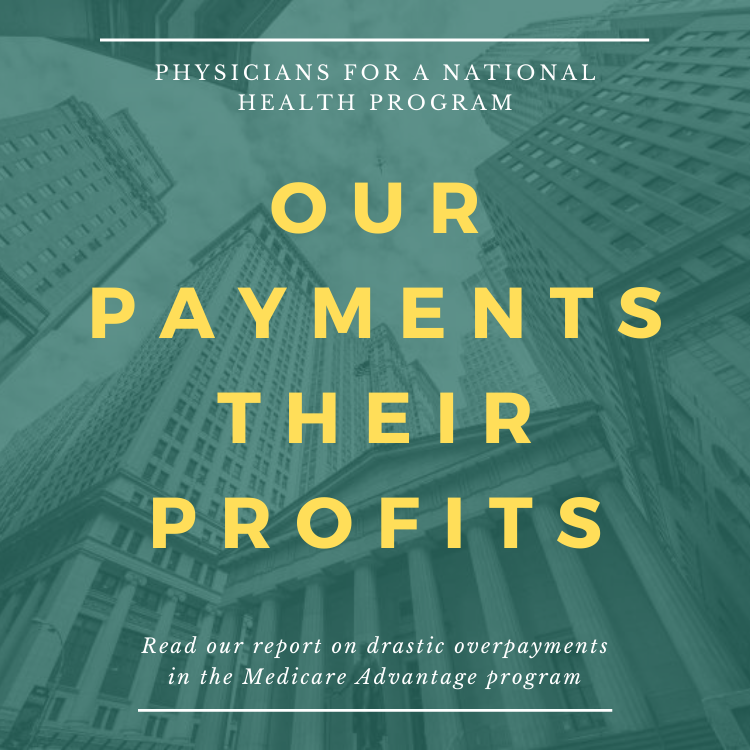Public Plan Option in a Market of Private Plans
By David Himmelstein, M.D. and Steffie Woolhandler, M.D., M.P.H.:
The “public plan option” won’t work to fix the health care system for two reasons.
1. It forgoes at least 84 percent of the administrative savings available through single payer. The public plan option would do nothing to streamline the administrative tasks (and costs) of hospitals, physicians offices, and nursing homes, which would still contend with multiple payers, and hence still need the complex cost tracking and billing apparatus that drives administrative costs. These unnecessary provider administrative costs account for the vast majority of bureaucratic waste. Hence, even if 95 percent of Americans who are currently privately insured were to join the public plan (and it had overhead costs at current Medicare levels), the savings on insurance overhead would amount to only 16 percent of the roughly $400 billion annually achievable through single payer — not enough to make reform affordable.
2. A quarter century of experience with public/private competition in the Medicare program demonstrates that the private plans will not allow a level playing field. Despite strict regulation, private insurers have successfully cherry picked healthier seniors, and have exploited regional health spending differences to their advantage. They have progressively undermined the public plan — which started as the single payer for seniors and has now become a funding mechanism for HMOs — and a place to dump the unprofitably ill. A public plan option does not lead toward single payer, but toward the segregation of patients, with profitable ones in private plans and unprofitable ones in the public plan.
www.pnhp.org
The option to purchase a public plan within a market of private health insurance plans would merely provide one more player in our inefficient, dysfunctional, fragmented, multi-payer system of financing health care, that is if the public option even survives the political process. It would leave in place the deficiencies that have resulted in very high costs with the poorest health care value of all nations (i.e., overpriced mediocrity in health care).
Those who believe that the people of this nation would have the wisdom to drop their private plans and join the government program are ignoring history. When Congress authorized private plans to compete with our existing public program, Medicare, many enrollees did just the opposite. One-fifth have left the traditional Medicare program and joined the private plans.
So why should we care? Why shouldn’t they have the right to choose private plans if they want them? We know that those private plans are wasting money, both in their own costs and the administrative burden they place on the delivery system, but what all too many don’t realize is that we are all paying for that waste because of the inherent structural deficiencies in our financing system. Plus we are being deprived of the reforms needed in our health care delivery system that our own single payer monopsony would bring us.
Single payer activists, don’t give up. As President Obama said in his press conference this week, “persistence!”
